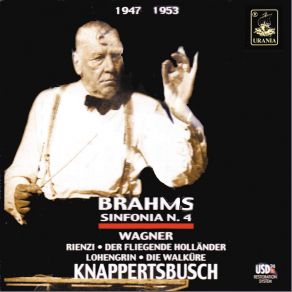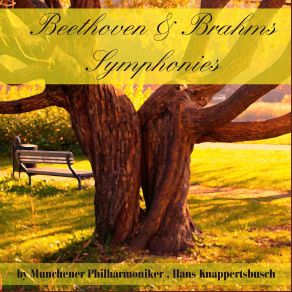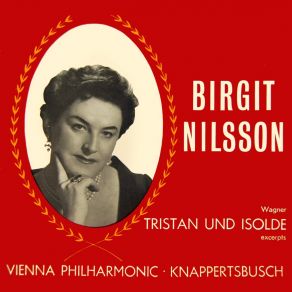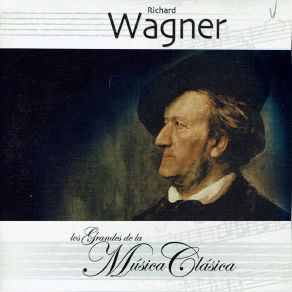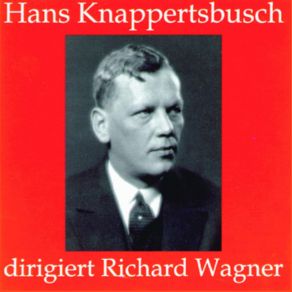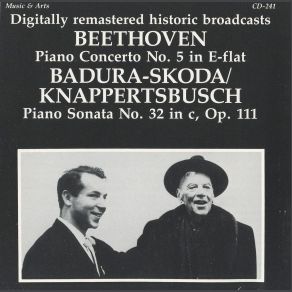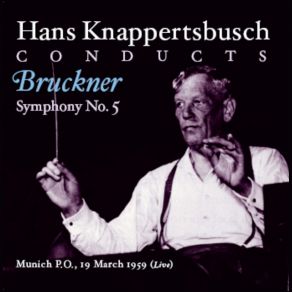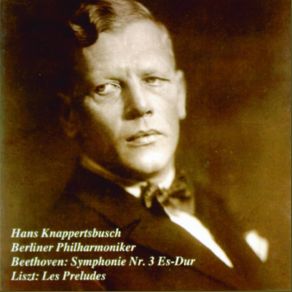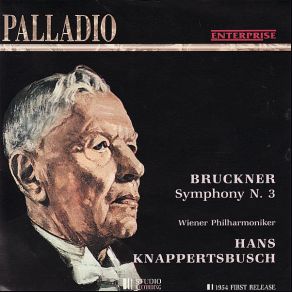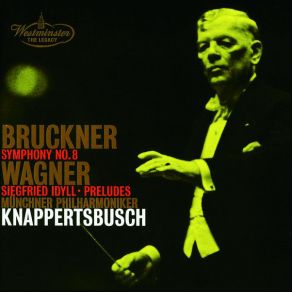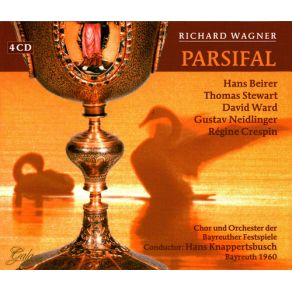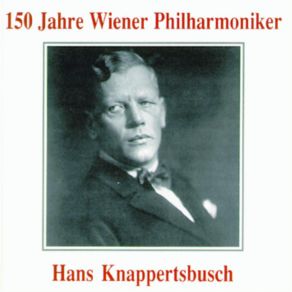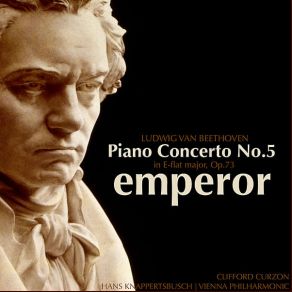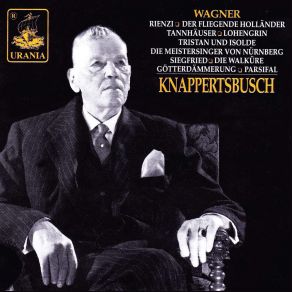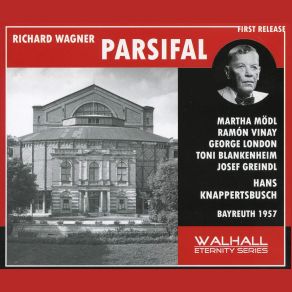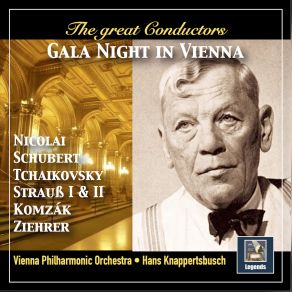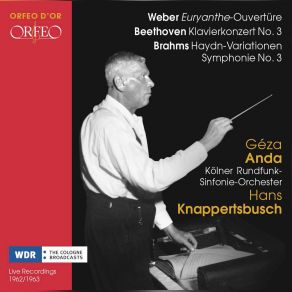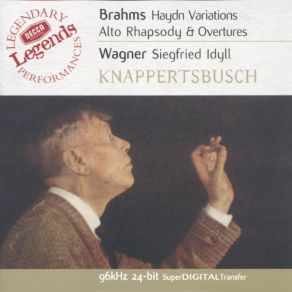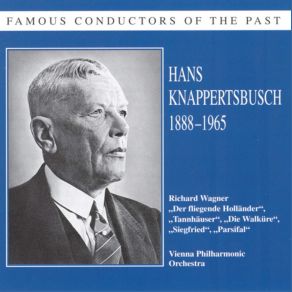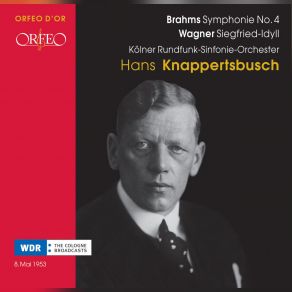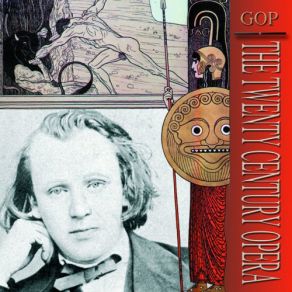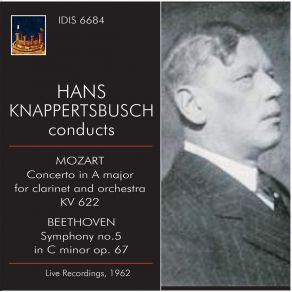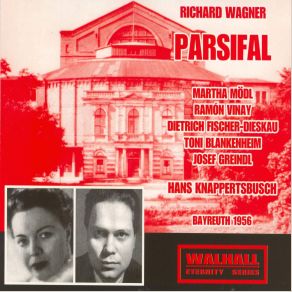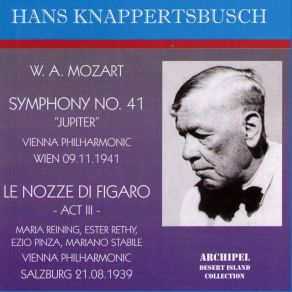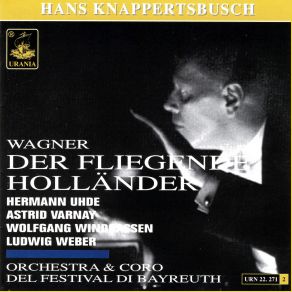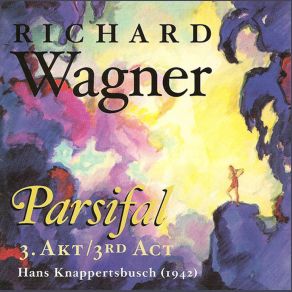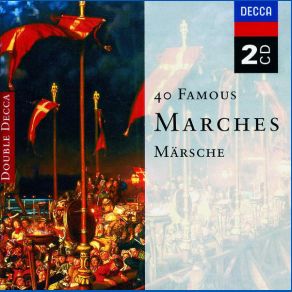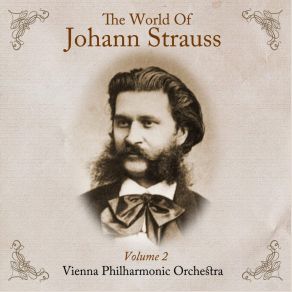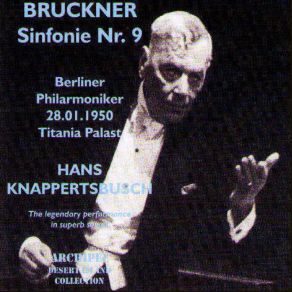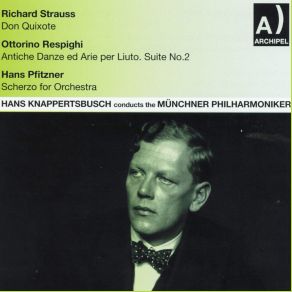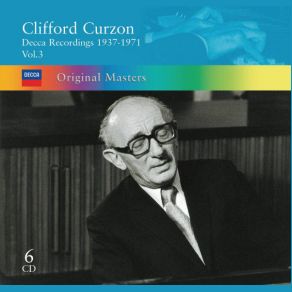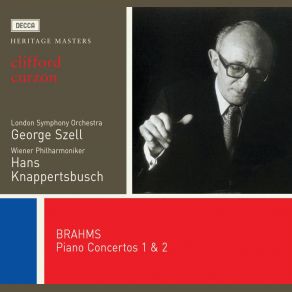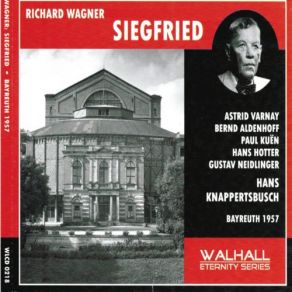Hans Knappertsbusch
Wikimp3 information about the music of Hans Knappertsbusch. On our website we have 70 albums and 42 collections of artist Hans Knappertsbusch. You can find useful information and download songs of this artist.
Biography
[Edit]Hans Knappertsbusch (1888 - 1965) was one of the most renowned and beloved conductors of the German Romantic repertoire in the mid-twentieth century. Although he grew up playing and loving music, his parents objected to the notion of a musical career. Consequently, Knappertsbusch studied philosophy at Bonn University; in 1908, however, he entered the Cologne Conservatory, where he studied conducting with Fritz Steinbach.
Knappertsbusch began his career as a staff conductor at the Mülheim-Ruhr Theater (1910 - 1912) and then as opera director in his home town (1913 - 1918). Equally important to his development were his summers as an assistant to director Siegfried Wagner and conductor Hans Richter at the Bayreuth Festival. Knappertsbusch's Bayreuth activities led to his taking part in the Netherlands Wagner Festivals in 1913 and 1914. In 1918 Knappertsbusch went to Leipzig and, in 1919, to Dessau, where he became music director in 1920. When Bruno Walter left Munich in 1922, Knappertsbusch was asked to assume the position as music director there.
Knappertsbusch's personality was easygoing; he was notably free of the restlessness and undue ambition that often attended a rising career such as his. He was content mainly to stay in Munich, with the result that he never became as well-known as many of his colleagues. In any case, Munich fully appreciated Knappertsbusch's talents, and he was named conductor for life. However, he refused several demands by the Nazis and was fired from his "lifetime" post in 1936. He conducted a memorable "Salome" in Covent Garden in 1936 and 1937 and guest conducted elsewhere in Germany, but was content to maintain a low profile during the Nazi regime. He left Germany after the Munich debacle, settling in Vienna where he frequently conducted the Philharmonic and the Vienna State Opera. Knappertsbusch's career was again impacted by the Nazis when Germany took over Austria over in 1938; however, he was mostly able to steer of trouble with the Nazis.
Knappertsbusch gained a reputation for broad, magisteral performances of Bruckner and, more and more, seemed to represent the traditional style of unhurried Wagner performances. He was famous for disliking rehearsals, often cutting them short; his orchestral players maintained that this was not the result of laziness, but of complete security in his interpretation and trust of the players. His performances were therefore not rigidly preconceived, but instead had a remarkable freshness and spontaneity.
When the Bayreuth Festivals reopened in 1951, Knappertsbusch worked closely with Wieland Wagner on orchestral matters (though the conductor was known to dislike Wagner's spare, revolutionary stage productions). Knappertsbusch's most outstanding recording is his stereo account of Wagner's "Parsifal" from the Bayreuth stage.
Title: Brahms: Symphony No. 2 (Live)
Artist: Hans Knappertsbusch, Munich Philharmonic
Genre: Orchestral, Classical, Orchestral
Title: Beethoven: Emperor
Artist: Wiener Philharmoniker, Clifford Curzon, Hans Knappertsbusch
Genre:
Title: Wagner: Parsifal (Bayreuth 1954)
Artist: Wolfgang Windgassen, Hans Knappertsbusch, Orchester Der Bayreuther Festspiele
Genre: Opera
Title: Brahms: Symphony No. 3 - Haydn: Symphony No. 94
Artist: Berliner Philharmoniker, Hans Knappertsbusch
Genre: Classical
Title: Knappertsbusch & The Berlin Philarmonic Orchestra
Artist: Berliner Philharmoniker, Hans Knappertsbusch
Genre:
Title: Wagner: Tristan und Isolde Excerpts
Artist: Wiener Philharmoniker, Birgit Nilsson, Hans Knappertsbusch
Genre:
Title: Strauss & Brahms: Orchestral Works
Artist: Hans Knappertsbusch
Genre: Orchestral, Classical, Orchestral
Title: Hans Knappertsbusch Conducts Bruckner Symphony No. 5
Artist: Hans Knappertsbusch, Munich Philharmonic
Genre:
Title: Parsifal (CD4)
Artist: David Ward, Thomas Stewart, Hans Beirer, Hans Knappertsbusch
Genre: Opera
Title: Bruckner: Symphony No. 8 - Wagner: Siegfried Idyll & Preludes
Artist: Hans Knappertsbusch, Munich Philharmonic
Genre:
Title: Beethoven: Symphony No. 3, "Eroica" (Live)
Artist: Hans Knappertsbusch, Munich Philharmonic
Genre: Classical
Title: Bruckner: Symphony No. 8
Artist: Hans Knappertsbusch, Munich Philharmonic
Genre: Orchestral, Classical, Orchestral
Title: Parsifal (CD1)
Artist: David Ward, Thomas Stewart, Hans Beirer, Hans Knappertsbusch
Genre: Opera
Title: Parsifal (CD2)
Artist: David Ward, Thomas Stewart, Hans Beirer, Hans Knappertsbusch
Genre: Opera
Title: Hans Knappertsbusch in Bremen
Artist: Hans Knappertsbusch, Bremen Philharmonic Orchestra
Genre:
Title: Parsifal (CD3)
Artist: David Ward, Thomas Stewart, Hans Beirer, Hans Knappertsbusch
Genre: Opera
Title: Wagner: Das Rheindgold
Artist: Gustav Neidlinger, Dorothea Siebert, Josef Greindl, Hans Hotter, Ludwig Suthaus, Josef Traxel, Toni Blankenheim, Hans Knappertsbusch, Georgine Von Milinkovic, Paul Kuen, Arnold Van Mill, Paula Lenchner, Maria Von Ilosvay, Elisabeth Schartel, Elisabeth Grümmer / Elisabeth Grummer, Bayreuther Festspielorchester
Genre: Opera
Title: Berlin Philharmonic, Vol. 7 (1951)
Artist: Hans Knappertsbusch
Genre: Orchestral, Classical, Orchestral
Title: Wagner : Parsifal (Bayreuth 1956)
Artist: Martha Mödl / Martha Modl, Hans Knappertsbusch
Genre: Opera
Collections
Title: Ultimate Opera
Genre:
Title: Dreamlist, Vol. 1
Genre:
Title: Sinfini Music: Best Sopranos
Genre:
Title: Famous Wagner Spectaculars
Genre: Opera
Title: Johann Strauss II zum 100: Todestag
Genre: Orchestral, Orchestral
Title: Ultimate Piano Concertos
Genre:
Title: Wagner: Opera Excerpts
Genre: Orchestral, Opera, Orchestral
Title: The Opera hits of: Wagner
Genre: Classical
Title: Wagner: Der Fliegende Hollander (1955)
Genre:
Title: Absolutely Classical, Vol. 125
Genre:
Title: Wagner: Opera Favorites
Genre: Opera
Title: Great Wagner Conductors
Genre: Opera
Title: Wagner, R.: Parsifal (Excerpts) [Opera] (1942)
Genre:
Title: Great Nights In Vienna
Genre:
Title: Thielemann - My Wagner Album
Genre:
Title: Wagner: Die Miestersinger von Nurnberg (1952-1953)
Genre:
Title: A to Z of Conductors
Genre:
Title: Westminster Legacy - The Collector's Edition (Volume 1)
Genre:
Title: 100 Must-Have Classical Music Favourites
Genre:
Title: 20 Great Soprano Arias
Genre: Opera
Title: 100 Essential Opera Arias, Songs & Overtures
Genre: Opera
Title: The 50 Greatest Opera Arias
Genre: Opera
Title: The 50 Greatest Performances of Classical Music
Genre:
Title: Top 100 Opera
Genre: Opera
Title: 111 More Classic Tracks
Genre:
Title: Decline & Fall of the Western Music
Genre:
Title: The Great Conductors, Vol. 3
Genre:
Title: Music for Strength and Courage
Genre:
Title: Frohes Neues Jahr! (CD2)
Genre: Classical
Title: Wagner - Great Recordings (CD3)
Genre: Classical
Featuring albums
Title: The Salzburg Experience, Vol. 1
Artist: Wiener Philharmoniker, Arturo Toscanini, Chor Der Wiener Stattsoper
Genre: Opera
Title: Brahms: The Piano Concertos
Artist: Clifford Curzon, London Symphony Orchestra And Chorus, George Szell
Genre:
Title: Beethoven: Piano Concertos Nos. 3-5 (Live)
Artist: Wilhelm Backhaus, Géza Anda / Geza Anda, Andor Foldes
Genre:
Title: Best of New Year's Concert
Artist: Herbert Von Karajan, Claudio Abbado, Wiener Philharmoniker, Lorin Maazel
Genre: Opera
Title: Voices of Opera: Sopranos
Artist: Montserrat Caballé / Montserrat Caballe, Leontyne Price, ΓΕΩΡΓΙΟΥ ΑΓΓΕΛΑ / GEORGIOU ANGELA, Mirella Freni, Anna Netrebko, Joan Sutherland, Teresa Berganza, Renata Scotto, Renata Tebaldi, Carol Vaness, Kiri Te Kanawa, Roberta Peters, Janet Baker, Birgit Nilsson, Regina Resnik, Olga Borodina, Pilar Lorengar, Marilyn Horne, Kirsten Flagstad, Elin Manahan Thomas
Genre: Opera
Title: Ritorna Vincitor! - The Legendary Birgit Nilsson
Artist: Birgit Nilsson
Title: Ritorna Vincitor! - the legendary Birgit Nilsson (2 CDs)
Artist: Birgit Nilsson
Genre: Classical
Artist: Vienna Philharmonic Orchestra Hans Knappertsbusch
Genre: Rock
Title: Greatest Ever Classical Masterpieces - The Very Best Classical Music Collection
Artist: Sir Adrian Boult, Berliner Philharmoniker, Francesco Maria Piave, Thomas Beecham, Yehudi Menhuin, Leopold Stokowski, Prague Philharmonic Strings Orchestra, Cambridge Philharmonic Strings Quartet, The London Festival Royal Orchestra, City Of Oxford Philharmonic Orchestra, The Edinburgh Symphony Orchestra, John Barbirolly, Karl Münchinggers / Karl Munchinggers, Myra Hest, Carlos Germani, Charles Boult, Teresa Garatti
Genre: Classical
Title: Classical Music for Zodiac Signs: Aries
Artist: Various Artists
Genre: Orchestral, Classical, Orchestral





